Brisbane’s John Briggs had been a qualified pilot for little more than a year when he was tasked with flying to the Bavarian Alps of Germany to drop bombs on Hitler’s hide-out.
It was April 24, 1945, and Nazi Germany had been on the verge of total military collapse for months.
The World War II veteran’s incredible story is one of the many wartime tales of servicepeople living in a home for heroes tucked away in Brisbane’s western suburbs.
Mr Briggs, then 20, remembers being told that key members of Germany’s leadership might make a last stand at Hitler’s “SummerPalace” at Berchtesgaden.
The Royal Air Force fighter pilot, who was raised in England, was among more than 300 bomber crews sent to flatten the area.
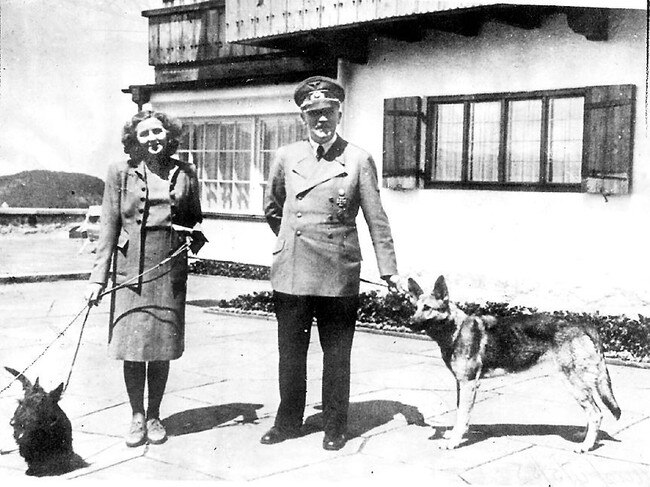
“I got on the last bombing raid at night to Kiel, one of the last of all the raids,” Mr Briggs said. “Eight hours and 20 minutes in the air is rather tiring. You’re too busy to worry about eating. In fact, I don’t remember taking a swig of water.”
The now 96-year-old was pragmatic about the risks of flying into the midst of the action and dropping bombs at the enemy.
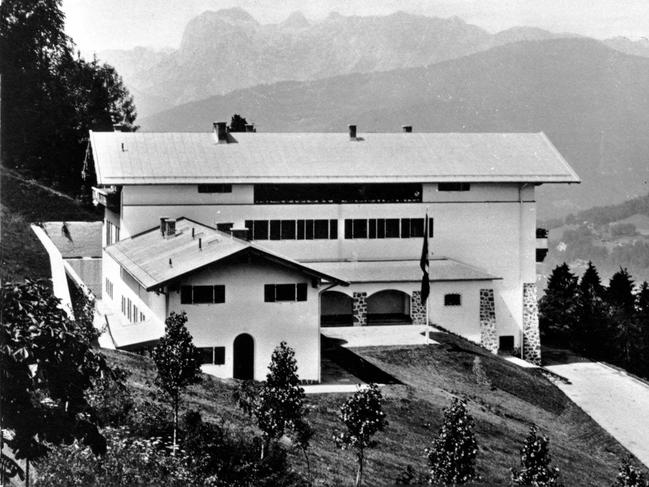
He navigated the skies with aircraft flying extremely close on either side and German planes shooting at them.
But Mr Briggs said he wasn’t all that stressed.
“You’re too focused on operating a big aircraft and you don’t know what’s going on beneath you,” Mr Briggs said. “Your team has to work together, sort of like a football team, or you’re not going to have any success.”
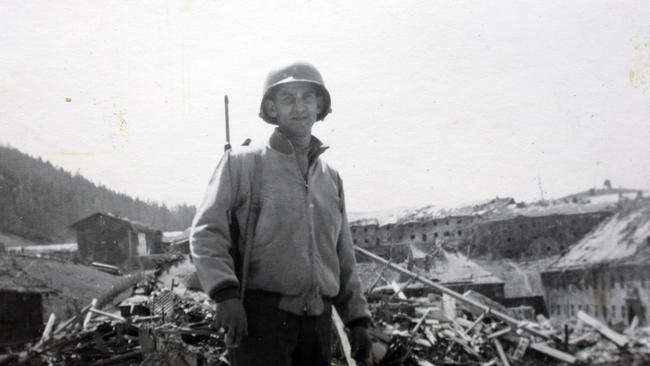
His crew bombed west of the alps before heading back to Lincolnshire on Anzac Day.
Hitler committed suicide by gunshot in his air raid shelter in Berlin five days later, the same day Mr Briggs embarked on his next operation.
This time he flew over Holland, dropping food to starving civilians while his plane was shot at by German soldiers.
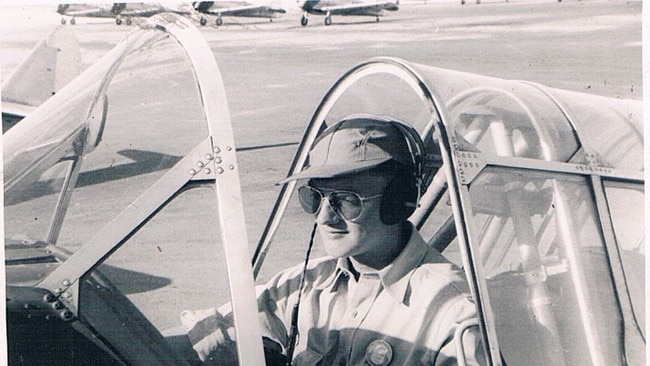
Before his time with the Royal Air Force concluded in 1946, Mr Briggs spent time collecting released prisoners of war from various camps and bringing them home to England.
He then went on to study civil engineering at the University of Leeds.
“That doesn’t mean I’m polite, it means I’m not electrical or mechanical,” Mr Briggs explained.
Upon graduating, Mr Briggs packed his belongings and his sense of humour and headed for Victoria at the promise of better pay.
Telling his story from Bolton Clarke Fairview in Pinjarra Hills, Mr Briggs lives a few just doors down from a WWII gunner who refused to push paper and a navy veteran exposed to nuclear weapons tests during the cold war.
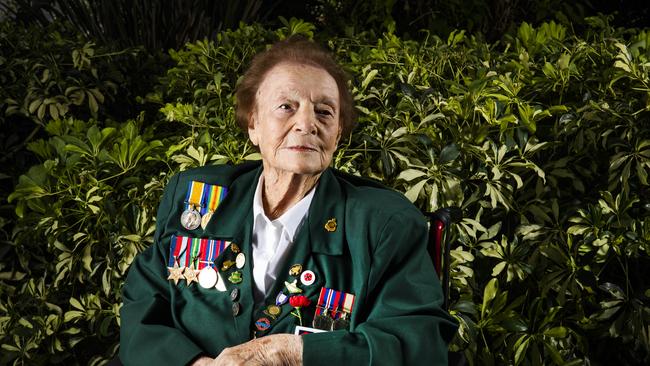
Cynthia Clifford, 97, had just turned 20 when she left her job as a secretary in an advertising agency to join the Australian Army in 1943.
“When I finished the six-week Rookie School they said ‘we need people in the office’ and I said I didn’t join the army to be in an office,” Ms Clifford said.
The now great-grandmother was trained up as a gunner and says she will never forget her first night shooting out of the pit.
“I was scared – I thought the end of the world had come, the noise was that bad, they got me quickly back to the pit and I’ve been all right ever since,” she said.
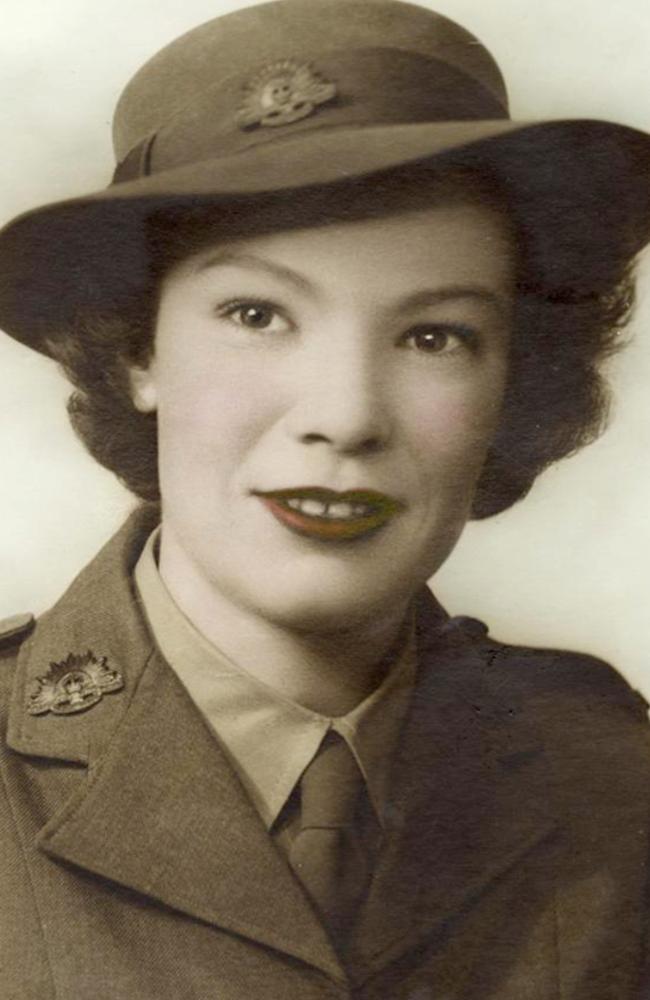
After the war, Ms Clifford worked as a civilian in the army before moving to Queensland to work in the public service where she met her husband, who also served in the army and passed away in 1982.
Seventy years ago Lieutenant Commander Gordon James was told he had 12 months to live after being exposed to nuclear tests at Montebello Island.
Now, 93, the navy veteran says he’s still “fit as a fiddle”.
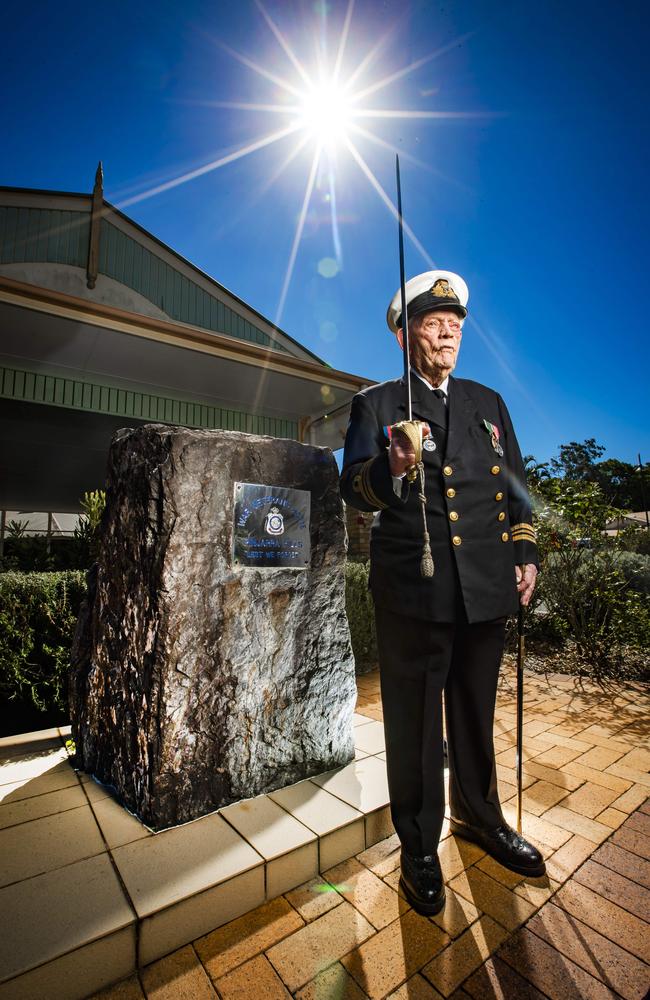
Born in Gympie, Mr James joined the navy the day after he turned 21 and served until he was 55.
“There’s a lot of it we have never known much about because a lot of his service was during the Cold War,” daughter Leanne Hallas said.
“Even after all this time, Dad says: ‘I signed the Secrets Act and I won’t say anything about it’. I think he will take it all to his grave.”
Mr James unknowingly rubbed shoulders with Prince Philip over breakfasts at the Flinders Naval Depot in Melbourne.
“After a few days of this, he approached me and asked if he could sit with me,” he said.
“I would have said yes regardless, but at the time I didn’t know who he was.”
Years later, Prince Philip spotted Gordon in an honour guard.
“He and Queen Elizabeth were visiting on board the Britannia, and when they arrived, I was in the honour guard to welcome them. Suddenly, Philip began calling out ‘Gordon, Gordon!’ and it took me a moment to realise he was talking to me,” he said.
“He invited me on board to have tea with him and Elizabeth. I couldn’t believe he remembered me. He was as sharp as a tack.”
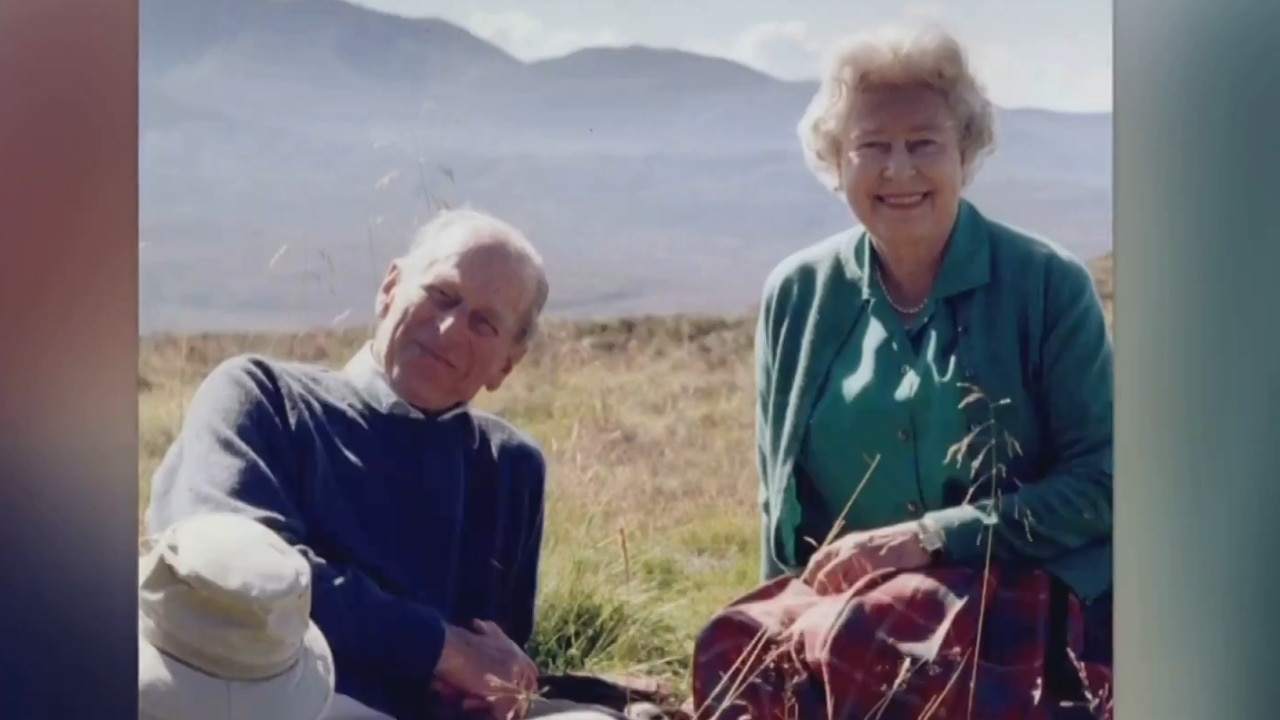
The Pinjarra Hills veterans are reflecting on a life of heartache, mateship and pride this Anzac Day, alongside an estimated 8000 surviving World War II veterans in Australia.
One million Australians served in World War II, with half of those deployed overseas. Mr Briggs married the love of his life, Joyce Poon, in 1953 after meeting on board the Orontes ship on a trip home to England.
He became an Australian citizen once they settled down in her home state of Queensland and raised three children together.
Mr Briggs said he had held various roles throughout Queensland but finished his career as an engineer for Brisbane City Council.
He spent almost 66 wonderful years with his wife before she died in 2018.
“I’ve come to accept it, that’s all you can do,” Mr Briggs said. “The word I live by is acceptance.”

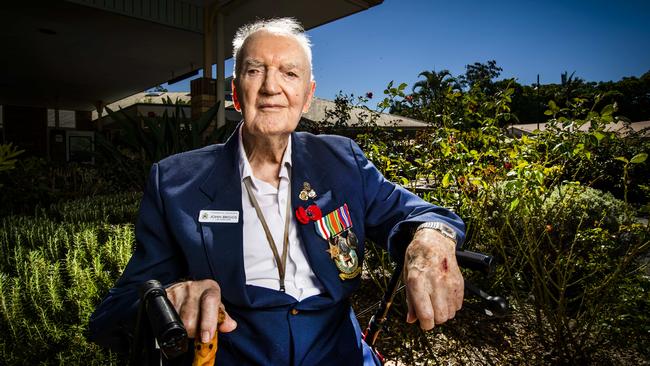
Add your comment to this story
To join the conversation, please log in. Don't have an account? Register
Join the conversation, you are commenting as Logout
‘Mirage of media releases’: Scathing attack on huge Labor health fail
The man behind a review of the former Labor government’s health infrastructure plan says all public hospital projects awaiting construction are off budget, face delays and some are not even ‘clinically fit’.
Education bosses fail test with ‘utterly ridiculous’ three-day week
What’s going on at Education Queensland? Sending kids back to school for three days after a two-week holiday makes no sense at all, writes Kylie Lang. TAKE OUR POLL